Podcast: Play in new window | Download (Duration: 52:51 — 96.8MB)
Physiology before Pharmacology for Healthy Blood Pressure
My interview with Dr. Russell Jaffe
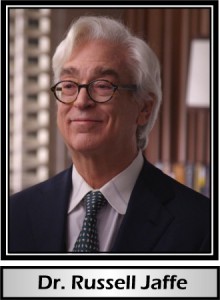
This is an important interview on a couple of levels. First because Dr. Jaffe stresses the importance on nutrition, diet and lifestyles for healthy blood pressure and as a first line defense. Secondly he discusses some of the deficiencies in the medical approach of controlling blood pressure with pharmaceutical drugs and the failure of many doctors to consider the lifestyle factors. In this interview we will discuss how to maintain a healthy blood pressure by lifestyle choices before turning to pharmaceutical drugs.
I think it is a fair question to ask “What is missing in the current medical model for treating high blood pressure?” There are several items for you to consider. You can’t make an informed decision if you don’t understand your circumstances and options.
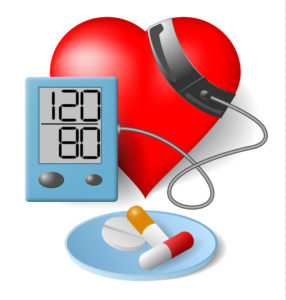 What is your blood pressure in the doctor’s office compared to blood pressure taken at different times, places and circumstances? Do you have white coat syndrome, which is when your blood pressure is up just because you are in the doctors office? What is your blood pressure when you are relaxed and at home? You need to know if your BP is up all the time or not.
What is your blood pressure in the doctor’s office compared to blood pressure taken at different times, places and circumstances? Do you have white coat syndrome, which is when your blood pressure is up just because you are in the doctors office? What is your blood pressure when you are relaxed and at home? You need to know if your BP is up all the time or not.- What are your numbers compared on the scale of low to high on average. Are you 120, 140, 160, 180, etc? The degree of risk is lower the closer you are to “normal”. If you are near normal, then the opportunity to improve without drugs is greater. Where do you fit on the scale? In either case lifestyle choices are critical. You must support your body and give it what it needs. You must nourish the tissues involved especially the blood vessels.
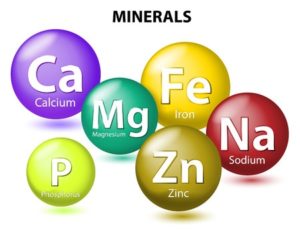 What are the lifestyle choices that can affect BP? Diet, exercise, supplementation, stress management, deep breathing, good sleep are very important. For the average healthy person these interventions are likely to be very successful. For someone with health complications or very high BP, the lifestyle choices are still important, but as an adjunct to medical care. In either case, give your body a chance to repair and restore through lifestyle and nutritional supplementation. This is what we cover in this interview with Dr. Jaffe.
What are the lifestyle choices that can affect BP? Diet, exercise, supplementation, stress management, deep breathing, good sleep are very important. For the average healthy person these interventions are likely to be very successful. For someone with health complications or very high BP, the lifestyle choices are still important, but as an adjunct to medical care. In either case, give your body a chance to repair and restore through lifestyle and nutritional supplementation. This is what we cover in this interview with Dr. Jaffe.- What are the benefits and risks associated with pharmaceutical interventions? If you don’t understand this you cannot know if a medication is likely to help and what are the side effects.
You can listen to Dr. Jaffe’s previous interviews on the eight predictive biomarkers and learn how to evaluate your health risks.
LEARN ABOUT THE NNT (Numbers Needed to Treat) NOTE: This is my soapbox and not part of Dr. Jaffe’s interview.
When I learned about the NNT, it change my world view about benefits and misuse of pharmaceutical drugs. I have discussed this in past interviews. I think you should understand the NNT especially for any drugs you take. Basically the NNT for any drug represents how many people need to be treated in order to benefit one person. This may seem confusing at first, but when you understand what the NNT means, you will have a powerful new way to evaluate the benefits versus risks of drugs you take or are considering.
Most people think that drugs are highly effective for most people. People assume that BP drugs will reduce the number of heart attacks, strokes and/or deaths in a significant way. It is hard to accept the fact that these drugs are not very effective and that this is revealed in the studies. But doctors and consumers are never told about the actual benefit or more accurately the lack of benefit. The benefits are disguised and manipulated to exaggerate the benefits by reporting only the relative risk reduction.
I recommend that you visit a site called TheNNT.com. There you can research many drugs in order to understand the risks versus the benefits. In the case of BP drugs for people with blood pressure of 170, you have to treat 125 people for 5 years to prevent 1 death. You have to treat 88 people for 5 years to prevent 1 stroke and you have to treat 100 people for 5 years to prevent 1 heart attack. So the drugs are not very effective and you have to treat a lot of people to have a benefit for 1 person. It is no wonder that our nation is over-medicated. People with modestly high BP with no cardiovascular issues are not likely to receive any benefit. 10% of patients will discontinue treatment due to side effects of the medication. Here is an excerpt from theNNT.com:
Blood Pressure Medicines for Five Years to Prevent Death, Heart Attacks, and Strokes
Efficacy Endpoints: Mortality, stroke, coronary artery disease, cardiovascular events
Harm Endpoints: Stopping medication due to adverse events
Narrative: Hypertension affects almost 29% of adults in the United States, most of whom are taking medication to lower their blood pressure. Blood pressure control has been shown to reduce the chances of developing cardiovascular problems and stroke (Mancia et al, 2009), however these reductions are derived from studies of patients with moderate or severe hypertension, and those with a history of prior cardiovascular events such as heart attack or stroke. However, evidence has been unclear on whether pharmacological treatment for previously healthy patients with ‘mild’ hypertension is beneficial.
This review included four randomized-controlled trials enrolling 8,912 subjects with mild elevations in blood pressure (systolic blood pressure 140-159 or diastolic blood pressure 90-99) without preexisting cardiovascular disease.
At a period of four to five years follow up, no differences were seen in mortality, cardiovascular events, CAD, or stroke. Approximately 9% more patients in the treatment arms withdrew due to medication side effects. End excerpt.
Let that sink in. Five years of being medicated and there is NO difference in outcomes!! This is one of the dirty secrets of the pharmaceutical industry. Their drugs are less effective than we are told. The harms are greater than we are told.
So ask yourself, are you the 1 person, or are you among the many? How likely is it, that you will benefit from medications? Are you someone who takes care of themselves otherwise. A person who is well nourished will do better than someone who isn’t. People who seek to repair, restore and maintain good health will always be at lower risk.
There is more to the story. In addition to the NNT, there is also the NNH (Number Needed to Harm), NNH is how many people are treated for every 1 person who has an adverse event. In the case of BP drugs that number is about 1 in 10.
Two other numbers you should understand is Relative Risk Reduction (RRR) and Absolute Risk Reduction (ARR). Ultimately it is the Absolute Risk Reduction that you want to know. The NNT reveals the ARR. If you were told that a drug is effective at a rate of 1 out of 100, would you consider that an effective drug? Probably not. When you realize that the very best drugs we have are effective for 1 in 4 to 1 in 10 and that most drugs are only effective for 1 in 50 to 1 in hundreds or thousands, it changes ones perspective.
This does not suggest that you should not use prescribed medications. It is to suggest that you should become informed about the true risks and benefits of any medications you take or are considering. If you need to find a practitioner to help you, contact PERQUE.com for a referral to a knowledgeable nutritional practitioner.
About Dr. Jaffe
Dr. Russell M. Jaffe received his BS, MD and Ph.D from the Boston University School of Medicine in 1972. He completed residency training in clinical chemistry at the National Institutes of Health (1973 – 1976), remaining on the permanent senior staff until 1979. He is board certified in Clinical Pathology and in Chemical Pathology. On leaving NIH Dr. Jaffe began a journey that sought to support the emerging field of Integrative and Regenerative Medicine.
Dr. Jaffe is CEO and Chairman of PERQUE Integrative Health (PIH). His dedication to the application of primary prevention and his commitment to providing superior nutraceuticals and autoimmune testing with clinical evidence of superior efficacy has made him a sought after speaker and leader in his chosen field.




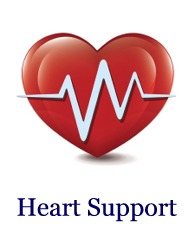
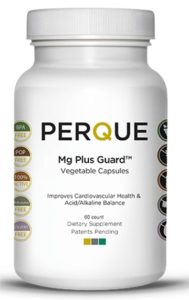
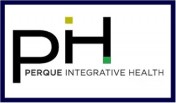

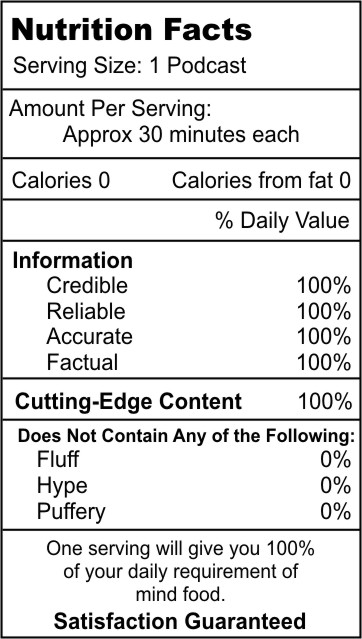




{ 0 comments… add one now }